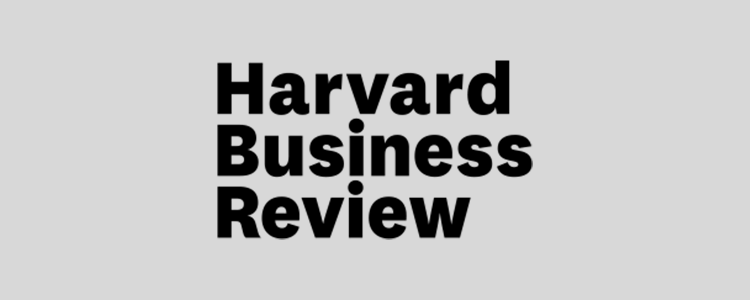💛 Every month, Content We're Loving gives you 2-minute synopses of the most noteworthy stories and reports from the world of work, HR, and people management. Check out the best of May.
Summer has started!
At the moment, remote work versus hybrid work is still a hot topic in the world of work. Which one is better? Most articles seem to contradict each other. It will hopefully soon become clearer as more studies and research emerge. And maybe, the industry will finally reach a consensus.
This month, we first dive into the topic of company culture. I think this is always a timely topic as "toxic work culture" is one of the biggest reasons for employee turnover. These culture "archetypes" by organizational psychologist Adam Grant really encapsulate all the surprising ways toxic cultures can manifest themselves.
Next, we look at the benefits of institutionalizing a meeting-free day. This small change can actually have a dramatic impact on employee happiness.
Lastly, we look at recent studies which showed that monitoring employees might backfire. In an age where many employees work remotely, does it pay to monitor them?
 The 4 Deadly Sins of Work Culture
The 4 Deadly Sins of Work Culture
From: Adam Grant Worklife Podcast
Topic: Work Culture
In the latest edition of his WorkLife podcast, best-selling author Adam Grant talks about 4 harmful cultural models.
They are toxicity, mediocracy, bureaucracy, and anarchy...
Toxicity is the deadliest. Company toxicity develops when getting things done comes at the expense of treating people right. As such, in these companies, you will find a lot of bad interpersonal behaviour, like disrespect, exclusion, and cutthroat actions.
Mediocracy is at the opposite end of the spectrum. In these cultures, relationships are valued above results. People may be so worried about maintaining social harmony and acceptance, that they sacrifice great work. As such, even if an employee's performance is subpar, they can get ahead as long as they are liked.
The third sin is Bureaucracy. In these cultures, it's all about process and rules, no risks. People cling to old ways of doing things and resist ingenuity and change. The questioning of the way they've always done things is considered blasphemy.
The last sin is Anarchy. In these cultures, you have risks but no rules. Anyone can do whatever they want; strategy and structure are irrelevant. Nobody learns from the past or agrees on a common goal. It's chaos all the way.
As Grant explains in the podcast, companies can be guilty of one or many of these sins.
Do you recognize your business in any of these?
Listen to the whole podcast
 Scheduling Another Meeting May Backfire
Scheduling Another Meeting May Backfire
From: Psychology Today
Topic: Productivity, employee happiness
Many employees report feeling overwhelmed by too many meetings. Yet, leaders tend to underestimate the number of employees who feel this way.
Interestingly, research has shown that companies with too many meetings, or conversely, too few meetings, are linked with low revenue.
In short: Too many meetings or too few meetings can negatively affect a business's finances.
So what's the meeting sweet spot?
A study demonstrated that reducing meetings by 20%, in other words, establishing just one meeting-free day a week, improved several workplace metrics.
- Productivity increased by 35%
- Cooperation increased by 15%
- Employee happiness increased by 48%
- Stress was reduced by 26%
Bottom line: This study strongly suggests that creating one meeting-free day can have a significant impact on important metrics of workplace happiness and productivity.
Read the full article
 Monitoring Employees Makes Them More Likely to Break Rules
Monitoring Employees Makes Them More Likely to Break Rules
From: Harvard Business Review
Topic: Remote work, management
Do you monitor your employees? Recent research suggests that this common practice may produce the opposite effect of what it intended to do. According to several studies, monitored employees were more likely to break the rules.
For example:
- Taking unapproved breaks
- disregard instructions
- damage workplace property
- steal office equipment
- purposefully work at a slow pace
This goes against common intuition. If we know we are being watched, why would we act badly?
Researchers propose that one's own internal sense of morality is a critical driver of behaviour.
And monitoring employees causes them to subconsciously feel that they are less responsible for their own conduct, thus making them more likely to act immorally.
The good news is that researchers found a way companies can mitigate this effect: Treat employees fairly.
If employees feel that they are being treated fairly, they will be less likely to suffer a loss of agency and are less likely to lose their sense of moral responsibility.
Companies should:
- Avoid unilaterally implementing a monitoring system, giving employees visibility and input into when surveillance is appropriate and when it should be off-limits.
- Give employees access to their own data, as well as data from other relevant teams.
- Be open and transparent about what data is collected and how it will be used with your employees.
Read the full article
About the author
 Michelle Cadieux
Michelle Cadieux
Michelle is a content writer for Applauz. She holds a Bachelor's degree in Psychology from Concordia University, and she has been writing about work and employee happiness for over five years.


